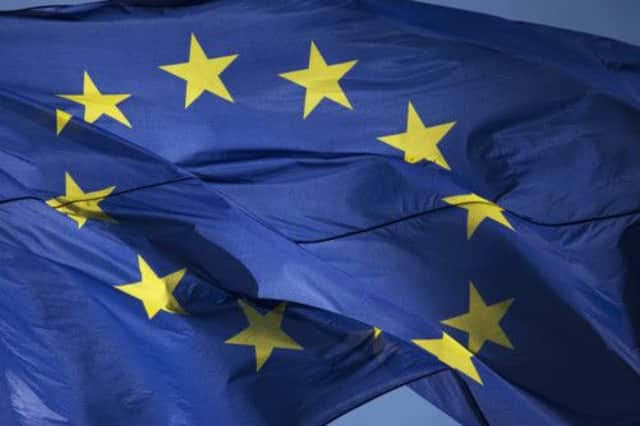Scottish independence: MEP claim over Scotland/EU


Alejo Vidal-Quadras, an MEP from Catalonia who opposes the region’s independence from Spain, said France and Spain “will surely not” accept an independent Scotland.
The SNP government hopes to negotiate its EU membership – including opt-outs from the euro, free travel areas and a budget cut – in the period between the referendum in September 2014 and its proposed independence day in March 2016.
Advertisement
Hide AdAdvertisement
Hide AdMr Quadras, speaking at the European Parliament in Strasbourg, described this timescale as “pure fantasy” and the hope of securing opt-outs “a dream”.
Any nation seceding from a member state will face obstacles from its former state and from other member states with secessionist movements, he said.
When asked whether these states would accept an independent Scotland, Mr Quadras said: “France and Spain, surely not. The UK, probably not. Don’t forget Spain has not yet recognised Kosovo.”
Mr Quadras said the SNP “are not telling the truth to the Scottish people” on the EU’s requirement for border controls with England.
“If we make a big effort of imagination and imagine a Scotland separated from the UK and a member of the EU, and Scotland is in Schengen [the passport-free travel area] and the UK is not, then there will of course be a border between both countries, with border controls and everything.”
The row came as Flemish nationalist MEP Mark Demesmaeker said Scotland’s membership negotiations will be more difficult if it insists on EU opt-outs.
Mr Demesmaeker said: “We don’t believe in Europe a-la-carte, but there could be good reasons for Scotland to ask because they are enjoying these opt-outs now.”
A Scottish Government spokeswoman said there is no mechanism to remove EU citizenship from Scots, that Scotland will keep the pound, and will remain part of the common travel area with the UK and Ireland, which predates Schengen and ensures passport free travel within the British Isles.
Advertisement
Hide AdAdvertisement
Hide AdShe said: “The future of Scotland is a democratic decision for the people of Scotland, not for politicians from other countries. Scotland has been an integral part of the European Union for four decades, and an independent Scotland will continue in EU membership.
“Ministers have always been clear – including in the government’s published documents – that there will be negotiation on the specific terms of our continued membership, but that these discussions will take place from within the EU.
“In the transition period immediately after a vote for independence in 2014, Scotland will still be part of the UK, so by definition will still be part of the EU while these negotiations take place.
“As such, Scotland would enter discussions with our share of the existing relationship between the UK and the EU,including existing opt-outs, as the basis for agreement.”
SEE ALSO: